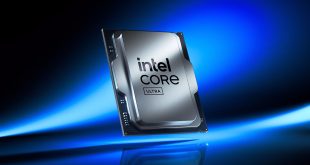No one will really know how much momentum Fusion has, until this time next year, when the 2011 financials come through from AMD and we can analyse them in detail. What we can say for sure is that the more products that offer Fusion, the better chance it has of success. So how will AMD Fusion play in the 100%-nVidia partner space?
Netbooks, notebooks and media centre PCs are the most natural applications for a Fusion-class processor. Integrating enough power for casual gaming and playing back HD content – while at the same time using a trickle of power – is a win for battery power and small chassis spaces.

While traditional technology companies produce pure components, more and more are now looking to offer a more complete solution. The logic seems to be ‘Why make 15% on a single part of a solution, when you can make a much fatter 15% on the whole product?'. Asus and Samsung have picked up mobile market share hand over fist with this approach.
Zotac, a 100% nVidia house, pioneered the union of smaller Intel processors like the Atom D525 with nVidia Ion technology, first seen way back at CeBIT 2009.
For 2011, Zotac seems to be looking to offer a wider choice of products to end users – by including the AMD Fusion processor on its new designs, like the stylish ZBox Blu-ray AD03. This unit comes unpopulated, so you can choose to add whatever memory and hard drive configuration suits you best. Alternative, you can save yourself time by choosing the ‘Plus‘ option which comes with 2GB memory and a 250GB hard drive.

KitGuru says: If Fusion takes off, then it will be hard for any component company to ignore. For manufacturers, the argument just has to be made with nVidia that you're only shipping a CPU-type product and that nothing similar exists in Jen Hsun's portfolio. They're reasonable folks and will understand. Surely.
Comments below.
 KitGuru KitGuru.net – Tech News | Hardware News | Hardware Reviews | IOS | Mobile | Gaming | Graphics Cards
KitGuru KitGuru.net – Tech News | Hardware News | Hardware Reviews | IOS | Mobile | Gaming | Graphics Cards



Guessing the metal look is plastic 🙁
Anyone interested in hi-fi is used to a solid metal finish.
Can it really increase price that much?
Material science has some interesting cross-overs. For example, in cars like the Audi TT or BMW Mini, you will often find that ‘metal’ surfaces are, in fact, textured/patterned plastic. Apart from the fact that it’s easier to work with, there’s probably also a weight saving, which could be useful if you want to mount Fusion into small areas or attach the unit to another product. We’ll ask the Zotac folks if they have plans for brushed aluminium.
The ZBox looks pretty cool, but still can’t compete in coolness with a cardboard box case. 🙂
Anyway, good to see AMD getting design wins with its APU’s.